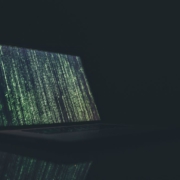Work and Digital Privacy
The digital revolution is also known as the fourth industrial revolution, placing its impact on society on the same level as the industrial revolutions that precede it. For all the talk about technology and how it’s revolutionising the way we are living, the changes also come down to people too — “our sense of privacy, our notions of ownership, our consumption patterns, the time we devote to work and leisure, and how we develop our careers, cultivate our skills, meet people, and nurture relationships”, according to Klaus Schwab, the chairman of the World Economic Forum. Yet, in the context of work and technology and the on-going pandemic, data security at work remains an under-discussed topic, especially now that a lot of us are still working remotely.
When it comes to caring for the employee and the company, data security should not be neglected, and is in fact a part of the employee. Opening a phishing email may result in vulnerabilities in the company’s network, depending on the work the employee is doing. With a good portion of work being moved online, attacks on cloud services that facilitate such online work present a very real threat towards the company’s business.
Hence, within each company, there is a need to keep employees educated on the importance of data security, even more so if the company is a business that also handles confidential data from clients. Phishing emails can be sent out by the IT department as an exercise to test the alertness of the employee, and only with a successful reporting of the phishing email will the employee then pass the test. Communication should also be kept on secure, encrypted platforms, and confidential information like passwords and usernames should not be displayed in the public eye, like post-its stuck onto the screen monitor. One should also be careful about plugging thumbdrives/USB drives of unknown origins into the computer device, for it is possible for an attacker to launch their attack through such a method. Update firewalls and anti-virus programs as needed.
The employee is also entitled to their privacy. In countries like Singapore, sensitive, personal information such as identification numbers are not allowed to be kept or passed around publicly even within the business context, and an employee is entitled to know what would be done with the information collected and where it would be headed to.
Overall, with these technological changes happening to society, there is a need to acknowledge the importance of data security and how we treat both our personal and business information as well. This article is also written with the help from Anastasia Tohmé and Martin Worner’s book, Work Remotely, and is a must-read especially in the age of remote working.



